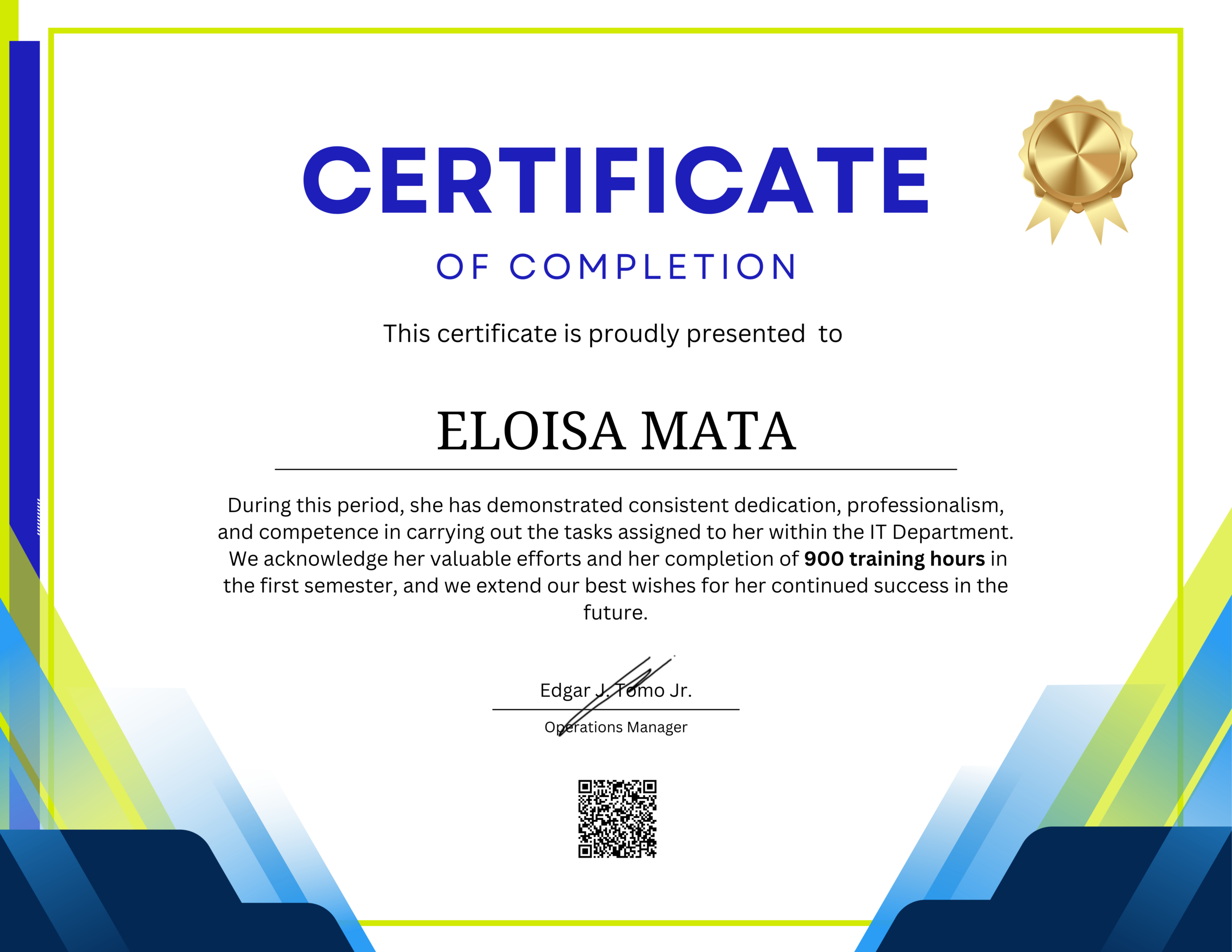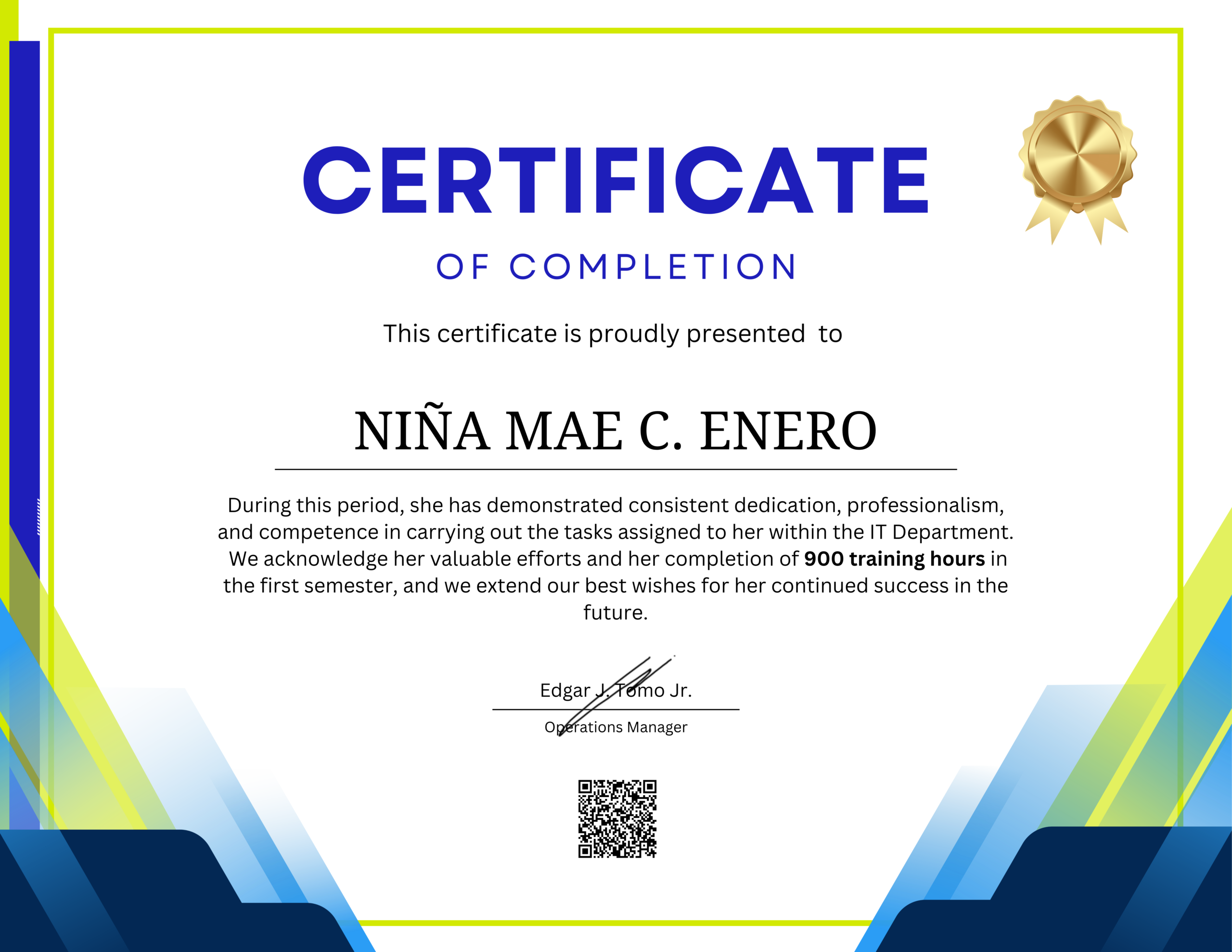The On-the-Job Training Experience of Niña Mae C. Enero Acknowledging Dedication in IT On-the-Job Training. During her on-the-job training period, she demonstrated consistent dedication and a strong sense of responsibility in fulfilling …
Addressing Common Myths and Misconceptions About CCTV Cameras

Introduction
Closed-circuit television (CCTV) cameras have become ubiquitous in modern society, serving as vital tools for surveillance and security purposes. Despite their widespread use, there are several misconceptions and myths surrounding CCTV cameras that often lead to confusion and misinformation. In this comprehensive guide, we aim to debunk some of the most common myths associated with CCTV cameras, providing clarity and understanding on their functionality, benefits, and ethical considerations.
Myth 1: CCTV Cameras Infringe on Privacy Rights
One of the most prevalent myths surrounding CCTV cameras is that they violate privacy rights. While it’s true that CCTV cameras capture footage of public spaces, they are primarily intended for surveillance in areas where individuals do not have a reasonable expectation of privacy. Public areas such as streets, parks, and shopping malls are subject to surveillance for security purposes, and the use of CCTV cameras in these spaces is typically within the bounds of the law.
However, concerns about privacy arise when CCTV cameras are installed in private spaces such as homes or bathrooms without consent. It’s essential to distinguish between surveillance in public and private settings and ensure that CCTV installations comply with relevant privacy laws and regulations.
Furthermore, advancements in CCTV technology, such as privacy masking and encryption, help protect individuals’ privacy rights by allowing for the selective obscuring or encryption of sensitive areas or information captured by the cameras.
Myth 2: CCTV Cameras Are Only Useful for Crime Prevention
While CCTV cameras are undoubtedly valuable tools for deterring and preventing crime, their utility extends far beyond security purposes. In addition to monitoring for criminal activity, CCTV cameras are used for various applications, including traffic management, crowd control, and employee monitoring.
In retail environments, CCTV cameras help prevent theft and shoplifting, while also providing insights into customer behavior and preferences. In industrial settings, CCTV cameras enhance workplace safety by monitoring hazardous areas and ensuring compliance with safety protocols. Moreover, in traffic management, CCTV cameras assist in monitoring traffic flow, identifying congestion points, and improving road safety.
CCTV cameras also play a vital role in disaster management and emergency response, providing real-time situational awareness to first responders and enabling more effective coordination during crises.
Myth 3: CCTV Cameras Are Expensive and Complex to Install
Another common misconception about CCTV cameras is that they are prohibitively expensive and difficult to install. While high-end surveillance systems may come with a significant price tag, there are plenty of affordable options available for both residential and commercial use.
Furthermore, advancements in technology have made CCTV systems more accessible and easier to install than ever before. Wireless cameras eliminate the need for extensive wiring, making installation simpler and more cost-effective. Many CCTV systems also offer plug-and-play functionality, allowing users to set up and configure their cameras with minimal technical expertise.
Additionally, the long-term benefits of CCTV surveillance, such as crime prevention and enhanced security, often outweigh the initial investment in installation and equipment.
Myth 4: CCTV Cameras Are Infallible and Always Provide Clear Evidence
While CCTV cameras are valuable tools for capturing visual evidence, they are not infallible and may have limitations in certain situations. Factors such as poor lighting conditions, camera placement, and image quality can affect the clarity and reliability of CCTV footage.
Moreover, CCTV cameras may not always capture the full context of an event, leading to misinterpretation or incomplete information. It’s essential to recognize the limitations of CCTV technology and supplement visual evidence with other forms of documentation and testimony when necessary.
However, advancements in CCTV technology, such as high-definition cameras and video analytics software, have improved the quality and accuracy of surveillance footage, making it easier to identify and analyze critical details in investigations.
Myth 5: CCTV Cameras Led to Increased Public Safety
While CCTV cameras can contribute to public safety by deterring criminal activity and assisting law enforcement agencies in investigations, their effectiveness in reducing crime rates is subject to debate. Some studies suggest that the presence of CCTV cameras may displace criminal activity to nearby areas or lead to a false sense of security among the public.
Additionally, concerns have been raised about the potential for misuse of CCTV footage by authorities and the erosion of civil liberties. It’s essential to weigh the benefits of CCTV surveillance against the potential risks and ensure that its implementation is guided by principles of transparency, accountability, and respect for individual rights.
Conclusion
In conclusion, dispelling the myths and misconceptions surrounding CCTV cameras is crucial for fostering informed discussions about their role in society. While CCTV cameras serve as valuable tools for surveillance and security purposes, it’s essential to address concerns about privacy, cost, effectiveness, and ethical considerations.
By understanding the capabilities and limitations of CCTV technology, stakeholders can make informed decisions about its deployment and ensure that it is used responsibly and ethically. Ultimately, by debunking common myths about CCTV cameras, we can foster a more nuanced and balanced perspective on their role in shaping the future of surveillance and security.
Related Articles
The On-the-Job Training Experience of Niña Mae C. Enero Acknowledging Dedication in IT On-the-Job Training. During her on-the-job training period, she demonstrated consistent dedication and a strong sense of responsibility in fulfilling …
The On-the-Job Training Experience of Chrisfel Zeye F. Mendoza Introduction. On-the-Job Training (OJT) plays a vital role in preparing students for the professional world by allowing them to apply academic knowledge in …



